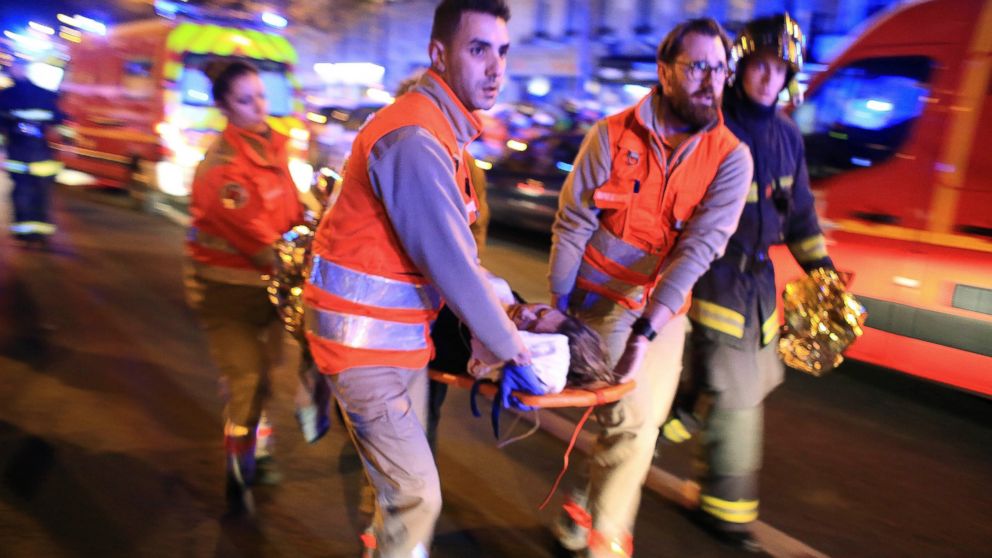Paris Attacks: ISIS Has New External Operations Unit, Officials Say
— -- ISIS has developed a specific group within its organization dedicated to launching terrorist attacks abroad, like the one the claimed more than 100 lives in Paris, U.S. officials told ABC News.
"There is a specific unit on the organization charts of ISIS for external attacks, for planning and carrying out attacks in western Europe and in the United States," said Richard Clarke, a former White House counter-terrorism advisor and current ABC News consultant.
Just a day before the attacks in Paris, ISIS claimed responsibility for a dual suicide bombing in Beirut, Lebanon that killed 43 people. At the end of October, the group's Egyptian affiliate said it was responsible for bringing down a Russian airliner over Egypt, killing more than 200.
Early Saturday ISIS, which is based in Syria, released a statement online claiming responsibility for the Paris attacks, which left at least 129 dead and more than 350 injured, and saying they were the first in a coming “storm.”
Clarke said that ISIS previously relied on so-called “lone wolf” actors that were simply inspired by ISIS to carry out attacks on their own abroad – including a number of incidents in the U.S. Recently, however, the terror group appears to be embarking on “complicated, commanded and controlled multi-actor” external operations.
In the Paris attack, authorities said seven gunmen unleashed a barrage of bullets and bombs in six separate locations Friday night, including at a popular concert hall and outside a packed soccer stadium. All seven eventually detonated their suicide vests, ending the attacks, but authorities are desperately hunting for an eighth man named Abdeslam Salah, believed to be on the loose, among other potential accomplices.
Police have detained several people in France and Belgium in connection with the tragedy, including two men in Belgium who officials say were directly involved – indicating authorities believe at least 10 people played a role in the complex assault.
Some of the men under arrest had been tracked to Belgium after being spotted on surveillance tape in a rental car purportedly used in one of the shootings. One car apparently used in the attack was discovered today with “several” Kalashnikov rifles, the Paris prosecutor said.
Two of the deceased gunmen have been identified by French officials: 29-year-old French citizen Ismail Mostefai and another man whose photo appears on a Syrian passport. However, authorities are carefully examining the authenticity of the passport, which shows the man slipped into Europe through Greece, then Serbia and Croatia in early October and then eventually to France, according to European officials.
Mostefai was described as a petty criminal who was suspected of being a radical, but had never been charged with a serious crime.
French authorities said two of the other gunmen were French nationals who lived in Belgium.
Howard Gutman, former U.S. Ambassador to Belgium, said the Belgians began updating their laws over the past decade to enhance their ability to monitor extremists, but they have continued to struggle to keep pace with the growing ranks of disaffected young Muslims who have fled Syria.
"There are probably 500 prime targets, which would require 5,000 agents to keep proper tabs. My best guess is that the Belgian [elite security] force probably totals about 200," Gutman told ABC News. "So they cannot watch even a fraction of the high risk threats."
Gutman, who stepped down in 2013, said helping Belgium reach out to the large population of young Muslims was a high priority during his time in the Embassy.
"We had significant success," he said. "I visited every major mosque and Muslim community centers and established relations with the imam and in the community including in Molenbeek," where two of the attackers were from. "For many of these visits, I was the only Western and non-Muslim visitor they had ever had."
U.S. officials said there is no known specific threat to the American homeland at this time.




